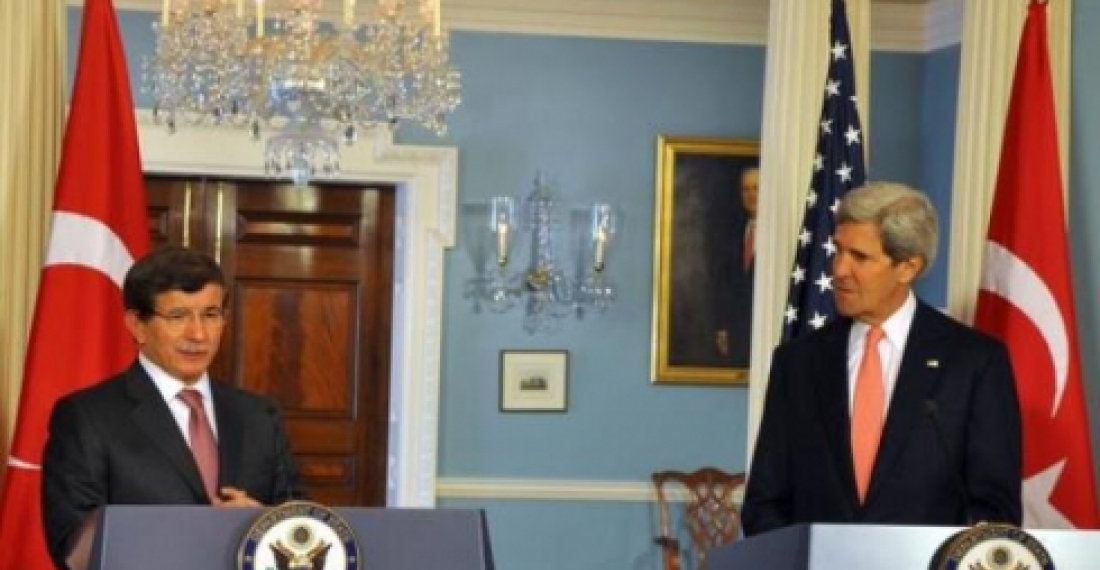The Presidents of Armenia and Azerbaijan are due to meet in Vienna later today in an effort to re-start negotiations on the Nagorno-Karabakh conflict, and the end the state of hostilities between their countries. This is the first meeting between the two Presidents for more than eighteen months.
Ahead of the discussions world statesmen have been weighing in to support the talks.
US Secretary of State John Kerry held telephone conversations with the two Presidents over the weekend. Speaking in Washington, Kerry said "We are urging the process forward".
On Monday Kerry also discussed the Karabakh issue with the Foreign Minister of Turkey, Ahmit Davitoglu at the State Department. Davitoglu said that Turkey and the US "look at the issue from the same perspective".
There will be updates on the Aliev Sargsyan Meeting in Vienna on commonspace.eu throughout the day.
source: commonspace.eu
photo: US Secretary of State John Kerry and Turkish Foreign Minister Ahmit Davitoglu after meeting in Washington on Monday (picture courtesy of the Turkish Foreign Ministry).







